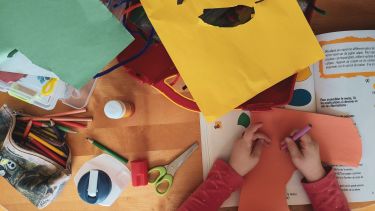Improving understandings of paediatric obsessive-compulsive disorder among school staff through the production of a co-created psychoeducational resource
Teachers play a critical role in the early identification of paediatric mental health difficulties and neurodisabilities. However, there is currently a significant unmet need for knowledge, early identification, and intervention surrounding paediatric obsessive-compulsive disorder (OCD).

Around three quarters of cases of OCD have an onset in childhood (Taylor, 2011). Due to the amount of time spent in educational settings, teachers are uniquely situated to recognise early presentations and symptoms. Currently, there is a lack of accessible and evidence-based information for teachers surrounding OCD and how they can support children and young people (CAYP) experiencing symptoms.
This PhD project aims to co-create a resource (working with key groups at each stage of the project) to improve teachers' understanding of OCD in CAYP. This also hopes to improve their ability to identify the condition and related challenges, and provide appropriate support. The resource will be created with CAYP with OCD, their families, and clinical and educational professionals, to ensure an accurate and comprehensive account of OCD is provided. This work will also explore educators’ existing knowledge of OCD, how we can build on this, the format they like to receive this information, and assess the suitability of a prototype resource. This will be explored through a series of interviews, focus groups and co-creation workshops. The project will take place in three phases:
Phase 1:
- Online interviews with CAYP with OCD (aged 7-12 year) and their parents/guardians;
- Online focus groups with school staff (SENCOs, teachers and learning support staff) and clinicians.
Phase 2:
- Online workshops with all groups to co-create the resource;
- Workshops will involve activities to decide what information should be included, and what the resource will look like.
Phase 3:
- Feedback from school staff on the resource around its suitability.
This project is supervised by Dr Lauren Powell, Dr Jilly Gibson-Miller and Dr Anna Weighall, and is funded by the White Rose DTP ESRC scholarship scheme. The effectiveness of psychoeducation in supporting CAYP has been highlighted in works by Dr Lauren Powell, particularly with primary-aged young autistic people, and young people with ADHD.
If you are interested in taking part, learning more, or receiving updates about the project, please follow this link where you can complete a Google Form to indicate your interest, or contact Elizabeth Colbert:
Email: Elizabeth Colbert: ejcolbert1@sheffield.ac.uk
X (formally Twitter): @libbycolbertpsy
